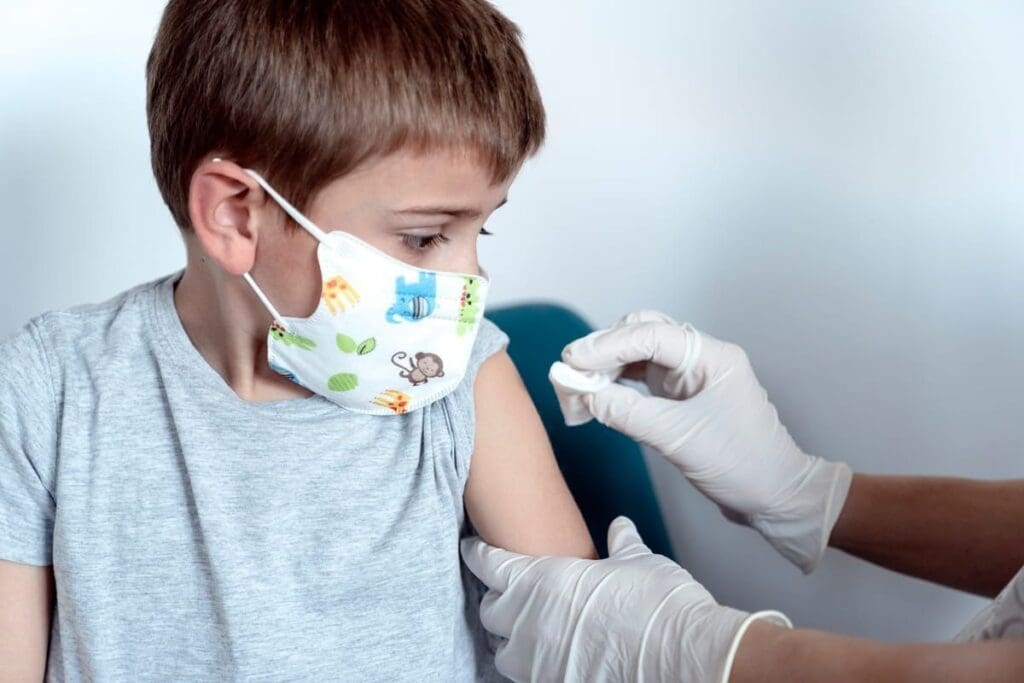Last Updated on November 24, 2025 by

Referring a child to a pediatric pulmonologist is key when they have ongoing or serious breathing problems. These experts are vital in finding and treating complex lung issues.
A pulmonologist is a doctor who focuses on lung diseases. For kids, their skills are essential for dealing with severe asthma or breathing troubles. These issues need quick and expert care. Learn when a child should be referred to what is a pulmonologist for specialized diagnosis and treatment of respiratory conditions.
A pulmonologist, or lung doctor, deals with respiratory diseases. Pediatric pulmonologists focus on kids. They manage lung and airway issues, giving children the right care.
Pediatric pulmonologists are experts in kids’ respiratory health. They have extra training for this. They handle many respiratory problems, from asthma to complex diseases.
Pulmonary specialists treat many respiratory issues. These include:
These conditions need special care. This helps manage symptoms and improve life quality.
Pediatric pulmonology is different from adult pulmonology. Kids’ lungs are developing. Their respiratory problems need a special approach.
Pediatric pulmonologists are trained for these needs. They consider the child’s age, size, and development.

It’s important to understand these differences. Referring kids to pediatric pulmonologists is key. This ensures they get the care they need to do well.
It’s important to know when to see a pulmonologist. Children with certain respiratory symptoms might need special care. This can help prevent long-term damage.
A cough that lasts more than a few weeks could mean a serious issue. Breathing difficulties like wheezing or shortness of breath also need attention. These signs might point to asthma or other lung problems.

Unusual breathing, like rapid breathing or stridor (a high-pitched sound when inhaling), is a red flag. A specialist should check these symptoms to find the cause and treatment.
Recurring chest infections or pneumonia could mean a problem with the respiratory system. A pulmonologist can diagnose and manage these issues. This might stop future infections.
Parents often wonder when to see a pulmonary specialist. If a child shows any of these symptoms, it’s time to talk to a doctor. Knowing what a pulmonary doctor does helps parents make the best choices for their child’s health.
Chronic respiratory conditions need a pulmonologist for the best care. These issues can really affect a child’s life, so they need detailed and specialized help.
Asthma is very common in kids. If it’s not well-controlled or is severe, a pulmonologist is needed. They adjust medicines and teach the family how to manage it.
Primary ciliary dyskinesia is a rare condition that harms the lungs. Other rare lung diseases also need a pulmonologist’s care. Finding and treating these conditions takes a team effort.
Cystic fibrosis and bronchiectasis are serious conditions in kids. They need ongoing monitoring, therapy, and medicine to manage symptoms. A pulmonologist is key in the team that cares for these kids.
In summary, kids with chronic respiratory issues need a pulmonologist or lung specialist. Knowing when to see a pulmonologist is important for better care and outcomes.
Advanced respiratory treatment often needs a pediatric pulmonologist. These cases involve complex conditions that need expert care.
Children on frequent systemic corticosteroids for breathing issues might need a pulmonologist. This shows their disease is severe. A pulmonologist can adjust treatments to lessen side effects and improve results.
Some kids with severe asthma or chronic breathing problems might need biologic therapies. A pediatric pulmonologist can decide if these treatments are right. They offer a focused way to handle severe respiratory diseases.
Children needing special breathing help, like long-term oxygen or non-invasive ventilation, benefit from a pediatric pulmonologist. These experts can customize support to meet each child’s needs, improving their quality.
Respiratory issues are often linked with other health problems, needing a team effort. A pediatric pulmonologist works with others for full care. This team approach is key for complex cases.
Having a pediatric pulmonologist in advanced treatments greatly helps kids with complex breathing issues. They offer specialized care, improving these children’s lives.
Getting a child to see a pulmonologist quickly is key when they have ongoing or serious breathing problems. A lung specialist can make a big difference in a child’s life. They can help manage complex breathing issues.
Knowing when to refer a child to a pulmonologist is important for parents. Early help from a pulmonologist can lead to better care for chronic conditions. This can lower the chance of serious problems and improve long-term health.
Liv Hospital is dedicated to top-notch care for kids with breathing issues. They follow global best practices. With experienced pulmonologists and modern facilities, Liv Hospital makes sure kids get the care they need.
Spotting the signs that mean a child needs to see a pulmonologist is the first step. This helps kids breathe better and live healthier. Parents play a big role in making sure their children get the right care.
A pulmonologist is a doctor who deals with lung and breathing problems. They diagnose and treat diseases affecting the lungs and respiratory system.
A pediatric pulmonologist treats respiratory issues in kids. This includes asthma, cystic fibrosis, and other lung diseases in children from birth to their teens.
A child needs to see a pulmonologist for ongoing or serious breathing problems. This includes uncontrolled asthma, trouble breathing, or frequent chest infections.
Symptoms that might need a pulmonologist include a long-lasting cough, breathing trouble, odd breathing sounds, and frequent chest infections or pneumonia.
Pediatric pulmonologists focus on kids with lung issues. Adult pulmonologists work with adults. Pediatric doctors get extra training for children’s lung health.
Conditions needing a specialist include severe or uncontrolled asthma, primary ciliary dyskinesia, cystic fibrosis, and bronchiectasis.
Advanced treatments needing a pulmonologist include long-term use of steroids, biologic therapies, and special breathing support.
A lung specialist is often called a pulmonologist.
See a pulmonary specialist for ongoing or severe breathing issues. Or if you have a chronic lung condition needing expert care.
Subscribe to our e-newsletter to stay informed about the latest innovations in the world of health and exclusive offers!